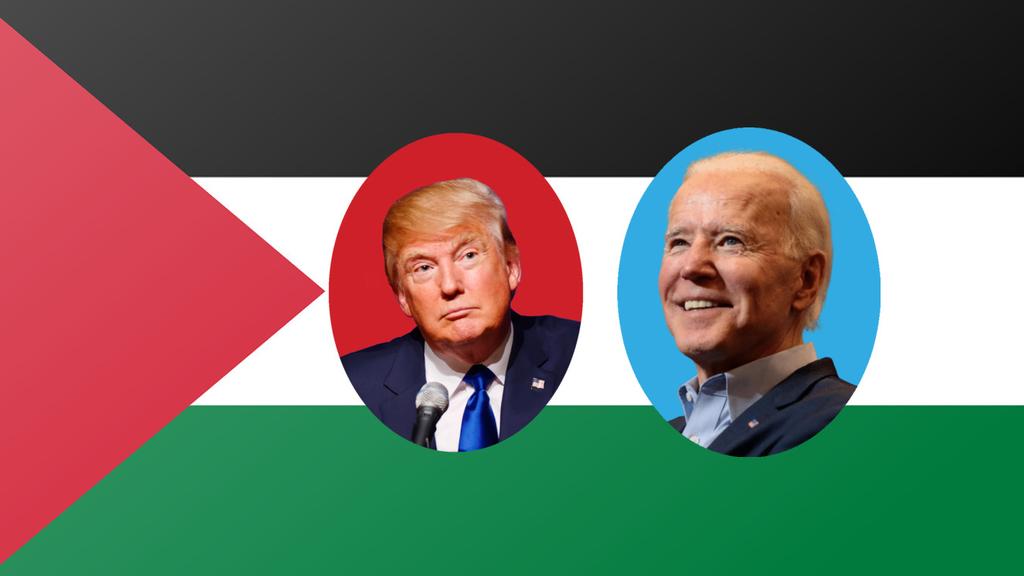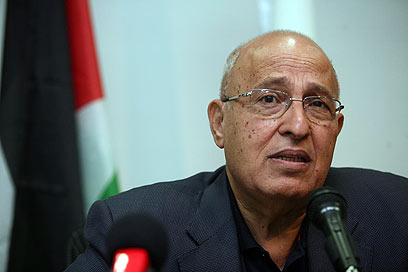Palestinian officials and the Palestinian public in general do not think that either presidential candidate, Republican Donald Trump or Democrat Joe Biden, would fundamentally change the American policy that has favored Israel over the years.
They do believe, however, that getting rid of Trump might pave the way for improved relations after years of stalemate.
Nearly all Palestinians think that if Trump wins November’s election, he will continue to support Prime Minister Benjamin Netanyahu and the plan to expand settlements in order to annex them later, but predict that if Biden enters the White House, he will work in a diplomatic manner between the Palestinians and the Israelis, which will buy more time for the Palestinian cause.
Nabil Shaath, an adviser on international relations to Palestinian Authority President Mahmoud Abbas, tells The Media Line that American strategy for the Middle East, especially in terms of strategic relations with Israel as an ally, will not change regardless of who is in power after the election, Republicans or Democrats.
“They support it [Israel] in so many ways, and also they use it to maintain their control in the region, where the two [U.S.] parties have the same approach in terms of that,” he says.
However, Sha'ath stresses that Trump was the worse of the two candidates for the Palestinian cause, as his projects and priorities were more dangerous.
“The issue is relative; if Biden wins, the danger posed by Trump’s policy will be mitigated,” he says, “especially given the shared strategy and full alliance between Trump and Netanyahu, two of the worst possible [figures for the Palestinians].”
Trump’s presence in the White House has encouraged the spread of the “fascist right” throughout the world, in particular in Europe and Latin America, and that fascist right has aligned with Israel, despite their differences, Shaath says.
“For them [the fascist right], Israel is an ally of the U.S., and let’s not forget that they aim for American support,” he says.
According to Shaath, Trump had a great deal of influence on Arab countries in terms of economic and financial interests.
“Therefore, I believe that if Biden wins, things will be relatively less bad than they are [with Trump in office].”
7 View gallery
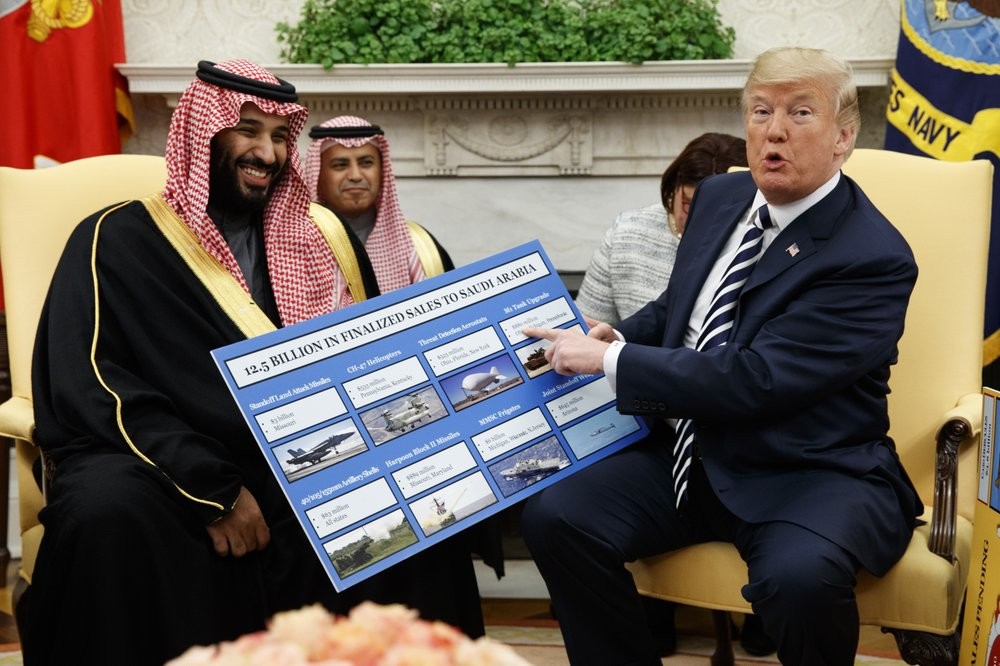

U.S. President Donald Trump presents arms sales to Saudi Arabia during a meeting with Saudi Crown Prince Mohammed bin Salman at the White House
(Photo: AP)
As for resuming the Palestinian-American relationship, Shaath says this depended entirely on American policy.
“If it changes with Biden, even partially, it might improve the relations between the Palestinian leadership and the U.S.,” he said.
The PA has boycotted the Trump administration since the U.S. recognized Jerusalem as Israel’s capital in December 2017 and moved its embassy to the capital the following year.
7 View gallery
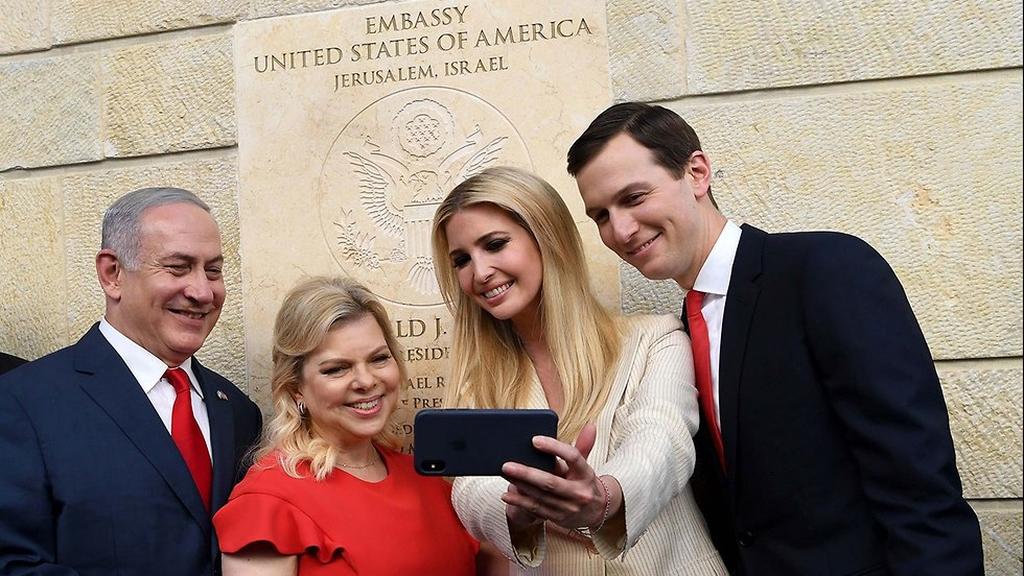

Benjamin and Sara Netanyahu with Ivanka Trump and Jared Kushner at the inauguration of the U.S. Embassy in Jerusalem, May 2018
(Photo: GPO)
Bashar Azzeh, a leading analyst and a member of the National Council of the Palestine Liberation Organization, says that regardless of who wins the presidential election, the Palestinian leadership would work with any U.S. administration that operated within the framework of international legitimacy and resolutions.
“Any American administration that commits to the two-state solution and looks for a peaceful solution that would satisfy the aspirations of the Palestinian people, we would work with it,” Azzeh says.
Palestinian political analyst Hani al-Masri tells The Media Line that Biden was the better option for the Palestinians, given that the other one was Trump.
“Neither of them is someone the Palestinians would choose, but there’s a difference between Trump and his vision that adopted the thesis of the Zionist movement and the Israeli radical right-wing, and Biden, who opposes this version and the annexation plan.
“Biden stands with Israel and supports its policy, but relatively speaking, he’s less extreme [than Trump],” Masri says.
He says that Biden might resume relations with the PA, as well as the American aid money, and call for a diplomatic process. “He [Biden] is the better of two evils,” Masri says.
7 View gallery
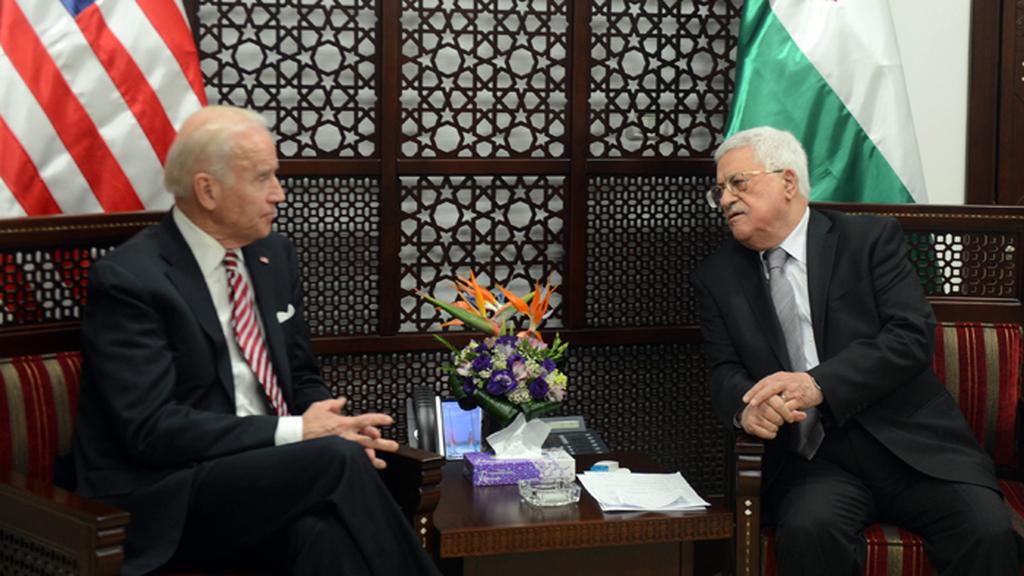

Then-U.S. Vice President Joe Biden meeting with Palestinian President Mahmoud Abbas in Ramallah in March 2016
(Photo: Archive)
Aram Sharif, a resident of Ramallah, says that for him as a Palestinian there is no difference between Biden and Trump.
“The American policy is pretty clear; it doesn’t matter who’s going to implement it," he says.
No single person will change the entire American policy toward the Palestinians, Sharif says.
7 View gallery
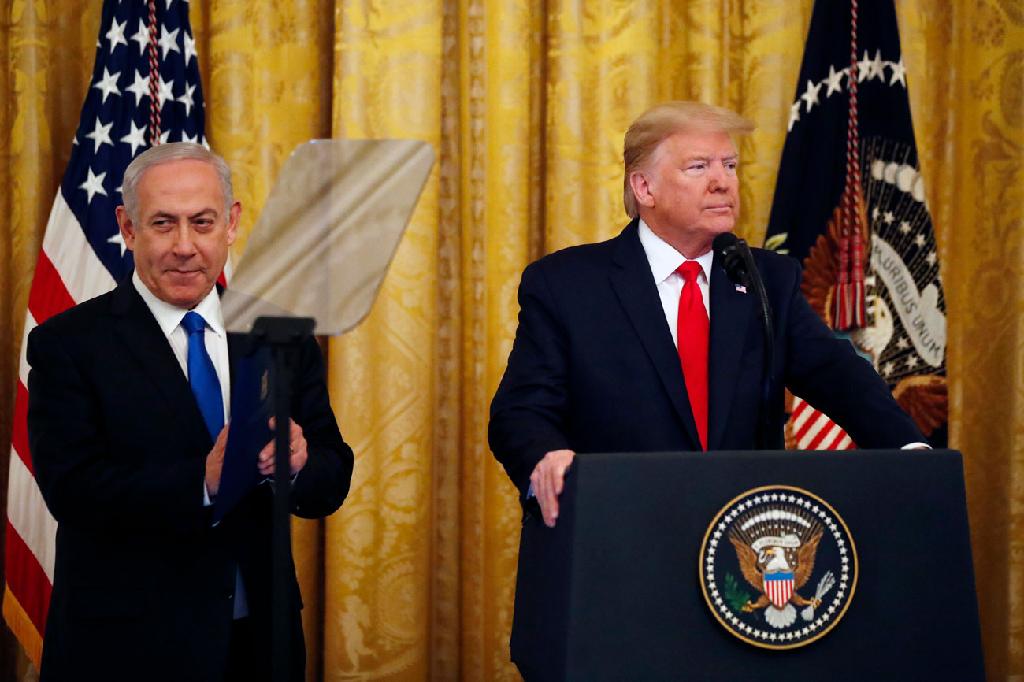

Benjamin Netanyahu stands beside Donald Trump as he unveils the U.S. peace plan at the White House in January
(Photo: AP)
Ramallah resident Dana Murad also believes nothing coming out of U.S. domestic politics could change much for the Palestinians, but says Biden definitely represented a better culture in terms of international human rights, equality and respect for different people.
“Based on that, I prefer Biden, because a U.S. president represents a [particular] culture not only regarding the Americans, but internationally as well, and as a global superpower their influence abroad is powerful,” she says.
“I never expect much from U.S. presidents, for what they can offer us as Palestinians, but with the recent global changes, I could expect Biden to be a more humane president who could help Americans receive good health and education services for free, and contain crime rates. I would expect this to come at the expense of the wars that the U.S. funds.”
According to Murad, Trump's actions regarding the Palestinian-Israeli conflict had already been on the way and were part of the American agenda for the Middle East.
“He just made it come up to the surface so that everyone could see it," she says. “The next president would [at best] only help by postponing or suspending such foreign policies, rather than radically changing them."
7 View gallery


Palestinians protest in Ramallah against the Trump peace plan, February 2020
(Photo: EPA)
Samer Shawar, a Palestinian resident of Jerusalem, says that neither of the two candidates would change U.S. policy toward the Palestinian cause.
“Trump is the worst president for the United States, one I see as a potential dictator in the United States. It is clear that he has also ignored everything related to the Palestinian cause,” he says.
But, Shawar adds, Biden would not be any better for the Palestinians.
“He is a supporter of Israel and Zionism. He once claimed: ‘You don’t have to be a Jew to be a Zionist.’”
Throughout the years, U.S. policy toward the Palestinian people had been “fake” in terms of peace and self-determination, he said.
“Trump or Biden, it won’t make a difference for Palestinians. For the Palestinian nation, it was clear from the early days that the U.S. would never work for their benefit or to defend their rights," Shawar said.
"But it took time for the Palestinian diplomacy to realize that those who stole land from its indigenous people [the Native Americans] would never be a defender of another people’s rights."


